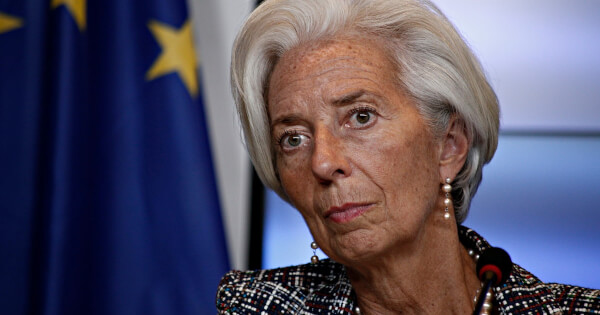Introducing Digital Euro to Protect Monetary Sovereignty amid Cashless Tendency: Lagarde
Godfrey Benjamin Jul 15, 2022 03:55
Christine Lagarde, the President of the European Central Bank, suggested introducing Euro is necessary to maintain its leading role amid the cashless tendency.

Christine Lagarde, the President of the European Central Bank, and Fabio Panetta, a member of the ECB’s Executive Board, have shared their thoughts on the need for the digital Euro amidst the waning influence of fiat cash.

In a blog post, Lagarde and Panetta identified three major avenues through which the Euro as paper money is no longer in vogue, noting that if left unaddressed, it could affect the overall relevance of the financial landscape of the European Union. As a part of the disruptive financial landscape identified, paper money is now being used relatively less with digital payments offered by the private sector taking centre stage.
Lagarde and Panetta noted that the dependence on private digital payments outfits is risky as private institutions cannot effectively replicate the roles of the central bank. While discrediting traditional private money service firms that their roles will bring in confusion, they noted that stablecoins on the other hand are “vulnerable to runs.”
Another fear the two pointed out is the fact that permitting private payments to dominate can invite non-European solutions and technologies to dominate the EU payment landscape.
Presenting the Digital Euro as the Solution
Lagarde and Panetta, in their submission, posited that only the Digital Euro, a complement to Fiat Euro, can wade off the current threats that are described above.
They pointed out that while the ECB is still working on the design concepts for the Digital Euro – projected to be completed in 2023 – there is a consensus to build the new legal tender, bearing in mind what consumers cherish the most, including “wide acceptance, ease of use, low costs, high speed, security, and consumer protection.”
“Introducing a digital euro would ensure that citizens can continue to trust in the monetary anchor behind their digital payments. It would protect the strategic autonomy of European payments and monetary sovereignty, providing a fall-back solution if geopolitical tensions intensify,” the blog post reads.
The EU is ahead of the curve when it comes to providing a detailed regulatory framework for its emerging crypto and virtual assets industry. While it is looking to promote innovation, it is also not sitting on its oars as it looks to present its CBDC as the dominant payment model in the near future.
Image source: Shutterstock
.jpg)